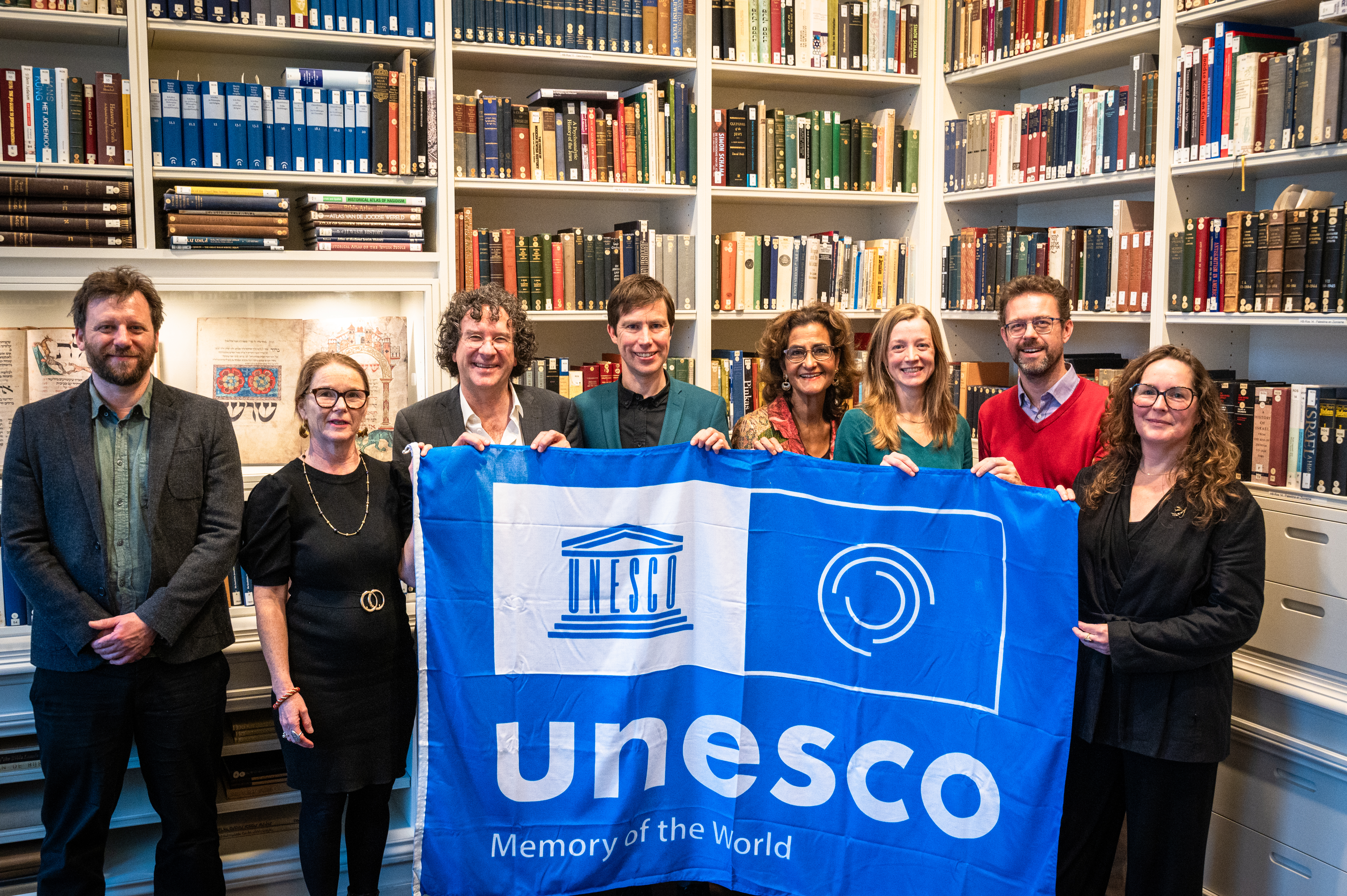BIBLIOTHECA ROSENTHALIANA INSCRIBED ON THE UNESCO NETHERLANDS MEMORY OF THE WORLD REGISTER

The Netherlands UNECSO Committee has inscribed the Bibliotheca Rosenthaliana on the UNESCO Netherlands Memory of the World Register. This register lists documentary heritage of special interest for the Netherlands. The Bibliotheca Rosenthaliana is the second collection held at the Allard Pierson, part of the University of Amsterdam, to receive this recognition. The Bibliotheca Philosophica Hermetica was inscribed on the register in 2022.
The Bibliotheca Rosenthaliana is the largest Jewish library on the European mainland and one of the most important Jewish libraries in the world. The basis of the collection was formed by Leeser Rosenthal (1794–1868), who left a collection of some 6,000 volumes at his death. His heirs donated the library in 1880 to the city of Amsterdam, and it was thus entrusted to the University of Amsterdam. Since then, the library has increased considerably in size and now totals around 120.000 items, including 1.000 manuscripts, 20.000 rare printed works, and about 80 archives. As such, the Bibliotheca Rosenthaliana serves scholars from the Netherlands and abroad.
The varied and extensive sub-collections of the Bibliotheca Rosenthaliana narrate, among other things, the Dutch-Jewish history and the history of Dutch Jewry over the past four hundred years. Jewish history has been inextricably linked to Dutch history ever since Jews first began to settle in Amsterdam and other Dutch cities in the sixteenth century.
Dutch-Jewish printers
An important part of the Bibliotheca Rosenthaliana is made up of the collection of Dutch-Jewish printers, such as Menasseh ben Israel. Among the wide range of books published in Amsterdam – the centre of Jewish book printing in the seventeenth and eighteenth centuries – were Bibles, liturgical books, grammar books, drama and poetry, and historical literature. Books were published not only in Hebrew and Dutch but also in Spanish, Portuguese and Yiddish. The collection includes numerous rare manuscripts and old prints that reflect the diversity of Jewish culture.
Dead language
Local Jewish histories from other regions, towns and villages in the Netherlands also feature in the collection. Ephemeral printed material, such as programme booklets and regulations of Jewish societies, as well as periodicals and newspapers, demonstrate the vibrant Jewish communities that existed throughout the Netherlands until the Second World War. Of great significance and uniqueness are the West-Yiddish works and the archival material in this language, which was widely spoken among Dutch Jews until the mid-nineteenth century, but is now virtually extinct.
The inscription of the Bibliotheca Rosenthaliana on the UNESCO Netherlands Memory of the World Register is an acknowledgement of the importance of this unique historical source to national and international scholars, to Jewish communities, and to Dutch society in general.
